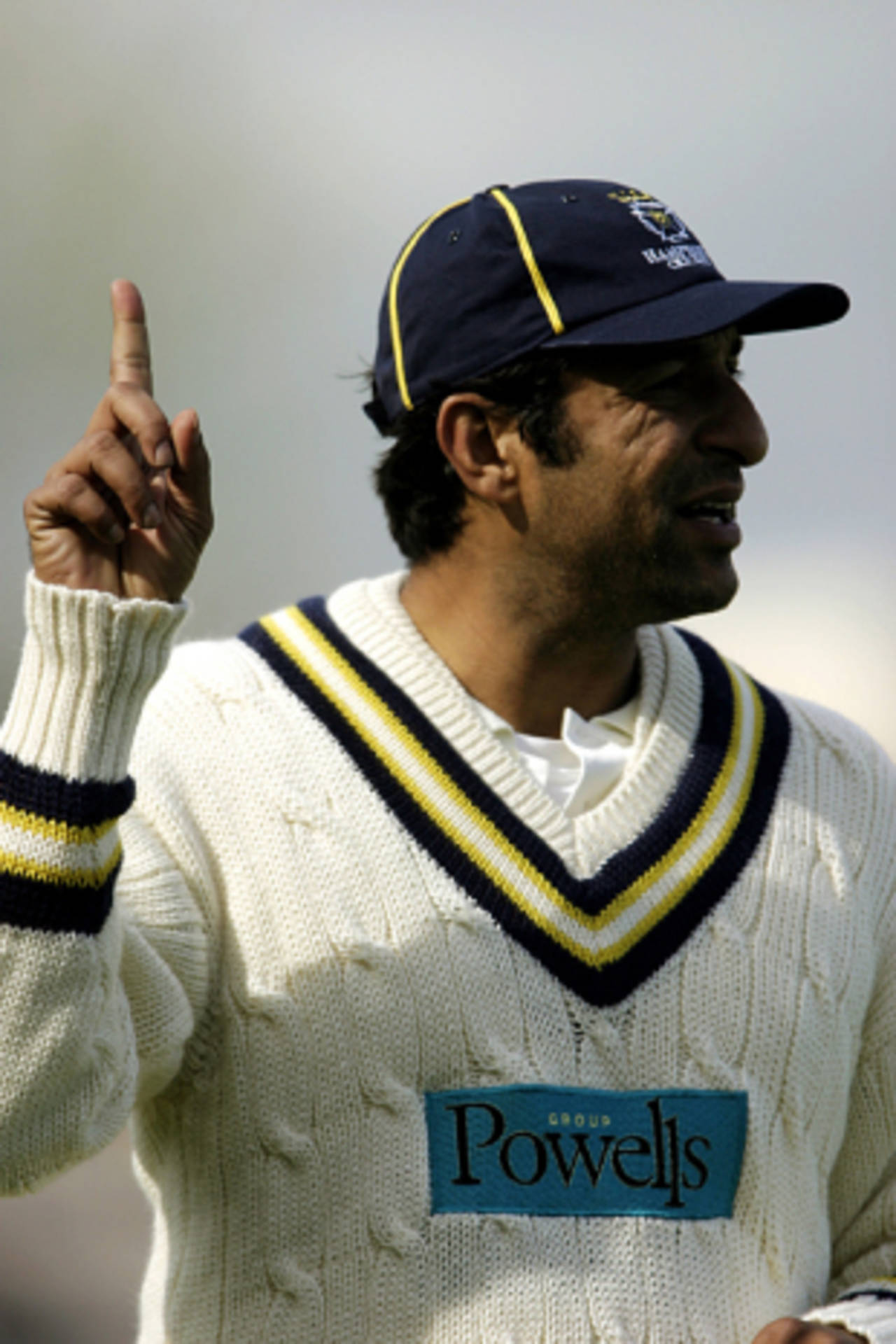Wasim Akram is best remembered for his achievements as a bowler, picking up 400-plus wickets in Tests and ODIs for Pakistan. He also had one of the most demanding jobs in world cricket as captain of Pakistan, which he served over several stints. There were many hurdles in his career - match-fixing allegations, an often volatile dressing-room atmosphere, a strong professional rivalry with Waqar Younis and a spate of injuries - and he credited his wife Huma, a qualified hypnotherapist and psychotherapist, for getting him through those difficult moments.
Huma, who died in Chennai on Sunday after suffering multiple-organ failure, had degrees in psychology, English Literature and European History, worked with some of the leading hospitals in Pakistan and even worked informally with Akram's former Pakistan team-mates Saqlain Mushtaq and Saeed Anwar.
In his autobiography Wasim, released in 1998, Akram dedicated an entire chapter - "Coping with the mental pressure" - to Huma describing their therapy sessions.
"She has been a rock to me in so many ways, not least in getting me mentally strong for challenges on the field," Akram wrote in the introduction. "You can't perform on talent alone at the highest level, and Huma has helped channel me into the right psychological areas that allow me to do justice to my abilities."
Huma admitted that she knew nothing about cricket when she met Wasim and didn't know a great deal more during their marriage. However, she saw that as an advantage because it allowed her to focus entirely on the mental angle and not get sidetracked by the technical aspects of the game. She used indirect hypnosis, employing relaxation techniques that are part of hypnotherapy. She said her most productive sessions came the night before a match - but only if he requested it.
"I'll ask him to imagine a previous situation in a game when he's been successful, and suggest he incorporates that into the following day's play," Huma wrote. "Never talk about the opposition or your team-mates, home in on yourself and your successes. That was particularly vital in those awful weeks after the Sharjah tournament at the end of 1997." (Akram had missed a lot of cricket that year due to a serious shoulder injury and Pakistan's failure to qualify for the finals of that four-nation series in Sharjah forced him to resign as captain.)
"It's never a case of saying directly, 'Close your eyes', it's more a matter of coaxing gently. I'll say, 'If you'd like to relax now, and think of a place where you're comfortable and happy. Then, if you would, tell me about a time you performed well.' Wasim will be wide awake at this juncture, but I'll be hoping that he'll be visibly realising. The place which I want him to visualise doesn't have to be a cricket ground; he's very fond of the sea, or the woods, indeed anywhere out in the open, enjoying fresh air."
Huma recalled one such session in England before the Benson & Hedges Cup final at
Lord's in 1995, when Wasim's county Lancashire were playing Kent.
"Wasim was very tense for some reason. So we worked in the team hotel and I asked him to summon up an image that he liked. 'The sea and the wind coming towards me,' he replied. I said, 'Would you tell me please what you want to do tomorrow?', and he answered, 'I want to get five wickets. I want to be the best allrounder in the world.' After about 20 minutes he was so relaxed he could barely lift his arms, and his eyes looked very heavy. Then I said, 'If you would like to wake up slowly, please' and he slept like a baby that night. There isn't a happy ending to this story though. Wasim injured his groin the next day and was expensive when he bowled, but I'd done my job! He's the one who has to bowl the overs!"
She also detailed an aspect of a cricketer's life that doesn't usually get talked about - the pressures of work. "Until the shocking match-fixing allegations caused Wasim such heartache, he had managed to ensure he wasn't taking the game home with him. In the past he has got down at times, but I've worked hard with him to channel the positive aspects of his career into productive repetition."
Huma then went on to explain the positive effects she noticed. "If he has a bad day, he'll talk to me about it - but only if he brings the subject up - and then moves on. He no longer broods on failure. He always strives to go one better, wanting five wickets next time rather than four, or relishing his professional rivalry with Waqar Younis. Wasim works better under pressure, turning out good performances when the team really needs him. Captaincy has brought that out of him even more."
Shortly after this book was released, Akram was reinstated as captain and led his team on a successful tour of India and to the final of the 1999 World Cup.
Kanishkaa Balachandran is a sub-editor at Cricinfo
